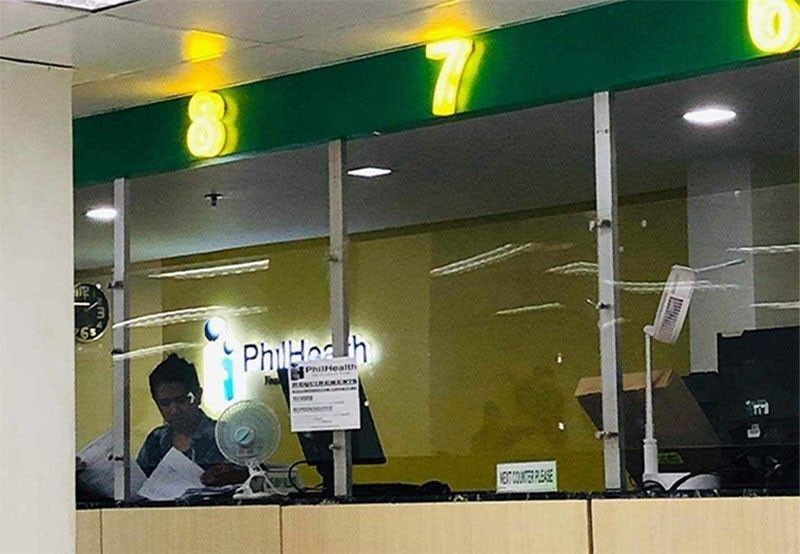As P30 billion transfer looms, can PhilHealth fund impounding still be stopped?

MANILA, Philippines — Eight days from now, P30 billion in sleeping Philippine Health Insurance Corp. (PhilHealth) funds will be returned to state coffers. But a preliminary conference by the Supreme Court (SC) this week could give a glimmer of hope as public pressure against the Department of Finance (DOF) continues to mount.
On Oct. 16, Wednesday, the Bureau of the Treasury is slated to receive P30 billion from PhilHealth – the third tranche out of the P89.9-billion “excess” funds that the government is claiming would boost the economy. Not everyone agrees.
Finance Secretary Ralph Recto has maintained that the controversial transfer will proceed as scheduled.
“We are only following instructions from Congress. We believe our efforts will help grow the economy, create jobs, increase people’s income and help improve people’s lives,” Recto told The STAR. “We are also improving benefit packages and other health services.”
For the past three months, Recto and the DOF have not wavered in their decision to direct PhilHealth to remit its unused subsidies in order to fund unprogrammed appropriations in this year’s budget.
To fund unprogrammed appropriations – the new congressional pork barrel – the bicameral conference last year devised another way aside from new taxes and additional debts. This is through the impounding of funds declared to be idle from government-owned and controlled corporations. PhilHealth is classified as a GOCC.
Even after several groups have filed petitions before the SC to block the transfer, Recto stood firm, that the move would not affect the viability of PhilHealth and impair the delivery of services – an argument that was rejected by the health sector, labor groups, economists and former government officials.
Nonetheless, the finance chief and former lawmaker said the DOF would respect the decision of the SC, whatever it may be.
SC bias
The SC en banc has scheduled oral arguments on Jan. 14, 2025 to hear the petitions against the fund transfer. By that time, the entire P89.9 billion would have been impounded.
On Oct. 9, however, the SC will call a preliminary conference between the counsels of the petitioners and the respondents.
University of the Philippines economist and former finance undersecretary Cielo Magno, who was one of the petitioners, is still hoping that the SC’s decision will be favorable. Currently, there are two petitions filed against the fund transfer – that of Sen. Aquilino Pimentel III and the group of Bayan Muna chairperson Neri Colmenares.
“We will be submitting a manifestation with urgent motion for the issuance of a TRO (temporary restraining order),” Magno told The STAR.
“We need public pressure. Justice Carpio will also file a case,” she said, referring to retired SC Senior Associate Justice Antonio Carpio.
Magno believes that PhilHealth will proceed in remitting the P30 billion this month.
“The precedent is strong; they can’t easily reverse previous decisions, that the GAA (General Appropriations Act) cannot amend specific laws,” Magno said.
“My worry is they will decide favorably in January, but to balance interest, they might say to not return the money anymore (to PhilHealth) because of economic repercussions,” she said.
Labor economist and Ateneo de Manila University professor Leonardo Lanzona is certain the DOF will not voluntarily rescind its decision as the government tries to get money from different sources to finance all government expenditures.
As to the decision of the SC, Lanzona thinks it will side with the DOF.
“The problem is that because it is more friendly to this administration, the SC will allow it. This move is fine in the short-run if it addresses short-term deficiencies in the budget,” Lanzona told The STAR.
“But if it is used in the long run, it incapacitates PhilHealth and other state-run corporations and delays whatever structural reforms, including the need to impose wealth tax, the DOF needs to implement in order to make the government more efficient,” he said.
DAP-like?
Lanzona argued that the PhilHealth fund transfer is similar to the controversial Disbursement Acceleration Program (DAP) of the Aquino administration more than a decade ago.
DAP was introduced in 2011 when government disbursements severely fell short of target. It served as a reform intervention to speed up public spending and boost economic growth.
However, it drew controversies and implicated several legislators after it was tagged as a mechanism similar to the Priority Development Assistance Fund or commonly known as pork barrel.
While DAP, for a time, succeeded in speeding up public spending and boosting economic growth, the SC considered it illegal as funds obtained from other agencies were not considered savings with due Treasury certification of windfall revenue collections.
As such, the funds could be wasted for purposes not obligated by law.
“Because of the legal restriction, DAP became a one-time procedure. Because no ruling has been passed yet or if this case is allowed to persist for a long period of time, its consequences will be disastrous not only to PhilHealth and PDIC (Philippine Deposit Insurance Corp.) but also to the whole economy,” Lanzona said.
“Its impact on PhilHealth is even worse because it reduces the capacity of the agency and more importantly redistributes the money that is badly needed by poor people to projects that benefit the well-off,” he said.
Economic growth or leaving GOCCs vulnerable?
Recto has been firm in his position that the government cannot afford to have excess money sleeping among GOCCs instead of using such resources for public investment.
Recto said sleeping funds can actually help the country without harming government corporations. This way, the government does not have to inflict additional taxes, increase debt and put pressure on the budget deficit.
DOF’s analysis has shown that tapping P200-billion in unused funds from both PhilHealth and PDIC could result in a potential 0.8-percentage point increase in gross domestic product and contribute roughly 600,000 jobs.
The finance chief also maintained that it is the government’s responsibility to manage resources including tapping idle funds in order to benefit a greater number of Filipinos.
Even Budget Secretary Amenah Pangandaman backed Recto, her fellow economic manager, noting that the economic team is just following the law through the GAA and that the decision is all about cash and resources management.
“There’s also an excess of P500 billion in the coffers of PhilHealth. So, we’re just putting it [idle funds] into good use also,” she said.
Similarly, former heads of the DOF threw their support to Recto amid the need to ensure long-term gains from the government’s priority projects.
As previous chief finance officers of the country, they maintained that responsible public financing requires considering opportunity costs.
“Every unused peso represents development denied for Filipinos. The cost of delaying crucial projects is a burden our people cannot afford - diminished public services, slower growth, more debt and higher deficits,” they said.
Not the last time
Lanzona and Magno believe otherwise, raising concerns that the PhilHealth case may not be the last for the Marcos administration especially amid the country’s budget deficit.
The government is already contending with slow fiscal consolidation until 2028 as the DOF insists on no new taxes that might be inflationary.
Specifically, the government is expecting that slashing the budget deficit will take longer than initially projected amid the need to still support key programs despite a limited fiscal space, with returning to pre-COVID levels far-fetched already.
“It is likely that this practice of transferring unused funds from GOCCs will also be used to replace pork barrel, confidential and other forms of funds for corruption in the government,” Lanzona said.
For Magno, the PhilHealth issue sets a bad precedent in terms of the DOF being able to take money from GOCCs despite existing laws indicating the specific purpose of GOCC funds.
Moving forward, this could affect the integrity and financial independence of the country’s GOCCs.
“Unless the SC issues a decision on the legality of the DOF order, our GOCCs remain vulnerable to the move of DOF to collect money,” Magno said.
The former DOF official emphasized that the agency has a huge deficit to manage and this could continue unless the economic team rationalizes spending or raises new taxes particularly from mining and sin products.
“But as Sec. Recto indicated, no new taxes and it seems like Congress has not reached satiation in terms of inserting pork barrel in the budget as shown by the 2024 GAA,” Magno said.
“So the question is where will DOF source the funds to finance these? Without an SC decision, our GOCCs are vulnerable. Congress can repeat their insertion mandating DOF to collect from GOCCs,” she said.
- Latest
- Trending





























